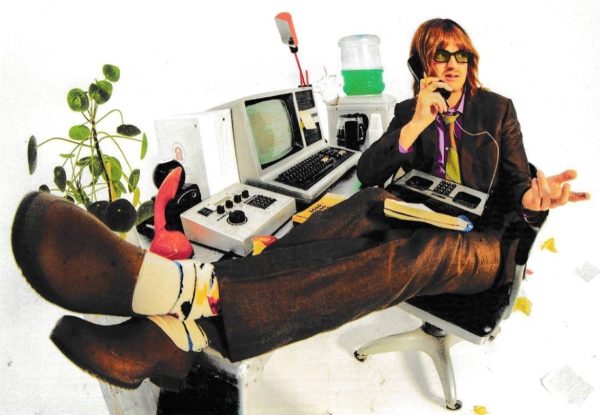America’s water shortage
Right now America’s drinking supply in dire straits
There is an ongoing problem of decreasing levels of groundwater in the United States, which I believe is a serious issue that needs direct action. This problem is especially prominent in the southwestern United States.
According to “Western U.S. water crisis worse than thought,” published in The Telegraph Online, the Colorado River Basin is quickly being sucked dry without any alternatives for the residents of the region. This river, the only major river that runs through the southwestern United States, provides groundwater to 40 million people in seven states.
In addition, the Colorado River Basin provides irrigation to four million acres of farmland, which would be devastated if the river evaporates.
The United States urgently needs to address the problem of water shortages, not only in the Southwestern region, but throughout the whole nation.
Many people do not realize just how important it is to have groundwater. It is a valuable commodity, keeping the human body functioning and nourishing farmland.
According to “Top 10 U.S. Cities Running Out of Water,” published on naturalnews.com, California holds the top 10 cities that are running out of water. Bakersfield, Calif., is the most notable out of these cities, as 90 percent of the city is under increasing drought levels.
California, located on the edge of the Pacific Ocean, is the state hardest hit with extremely low levels of groundwater. Fifty-eight percent of the state is under increased levels of drought, according to the article “Top 10 U.S. Cities Running Out of Water.”
I view this water shortage in critical states such as California to be due to political squabbling and the inability of people to realize that what is at the heart of the problem is the inability to invent and expand on new resources to create more levels of groundwater. It will be difficult to survive without groundwater.
One suggestion I have that can solve this problem is using rain, and then filtering the water out so that people can drink it without worry of becoming sick.
The food millions of people pick up at the grocery store comes mostly from farmland, and without groundwater, this food cannot grow at a healthy and nutritious level.
In ”What to Do When We Run out of Water,” published on scientificamerican.com, for society to progress and be productive, it needs groundwater. One solution humans can take part in is improving the understanding of water and what is causing so many rivers and lakes to dry up at abnormally high levels. This is partially due to chemical spills and other environmental issues currently affecting the United States.
With this knowledge, people will be able to find effective ways to combat this problem using scientific knowledge. Society can come together to create a more productive future, one where groundwater is abundant and society is flourishing.
The United States and its wells are quickly evaporating, leading to such methods like turning ocean water into drinking water, according to “Is the U.S. running out of well water?” published on CBS Online. According to this article, there is a major concern “that demand, coupled with the threat of climate change and a deteriorating infrastructure that wastes billions of gallons of water daily,” is affecting water production from wells. Much of the United States over the past 60 years has seen a rapid decrease in groundwater levels, according to CBS Online.
Many Americans do not understand that without simple groundwater they will have a difficult time surviving. Humans, just like any other living organism, need water to survive, and it is this substance that provides the brain with increased focused on a particular task.
I disagree with the little action the U.S. government has been taking to prevent this expected catastrophe. America’s future generations will need to become more aware of this problem and the effect on society this shortage will have. Increased discussions need to happen right now in order to ensure effective alternatives for the future of groundwater.









